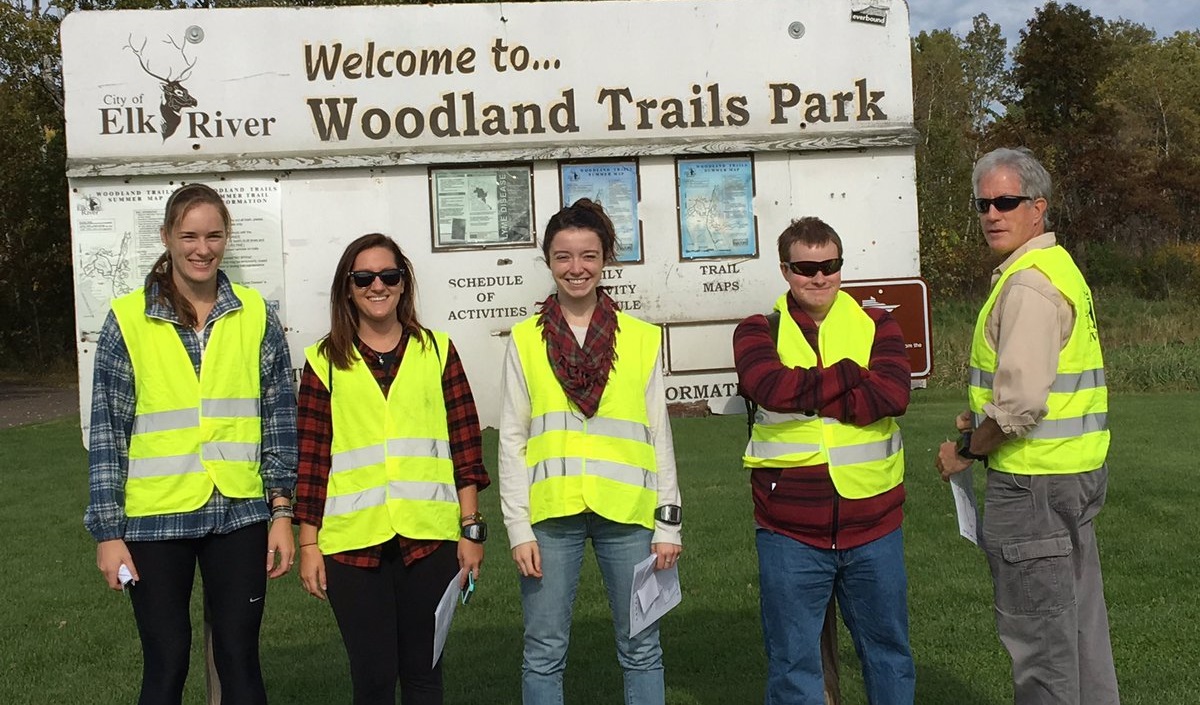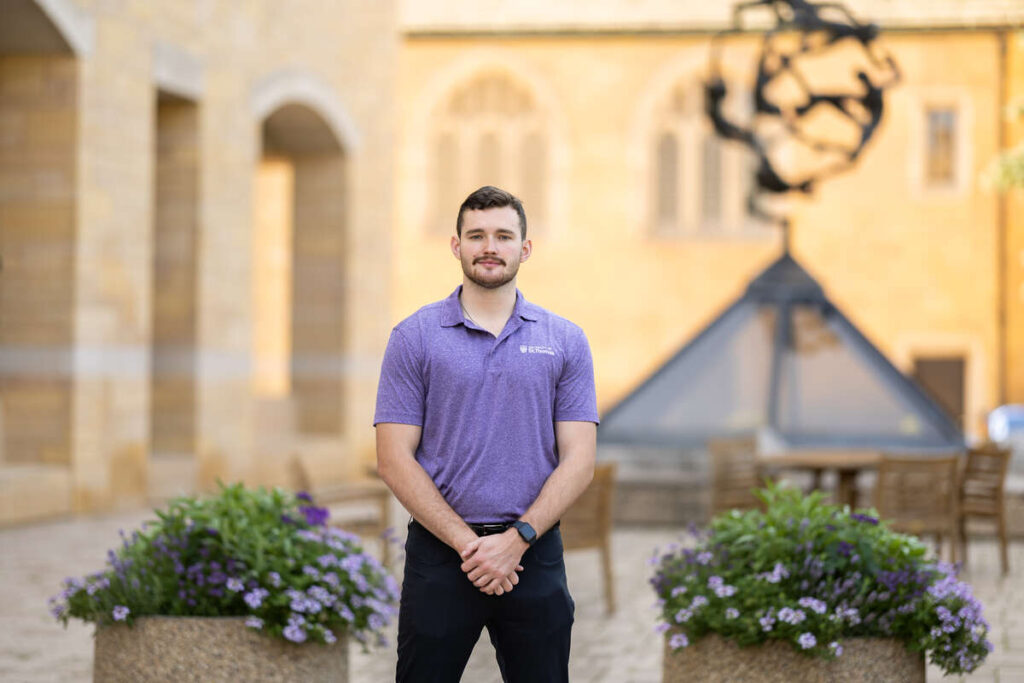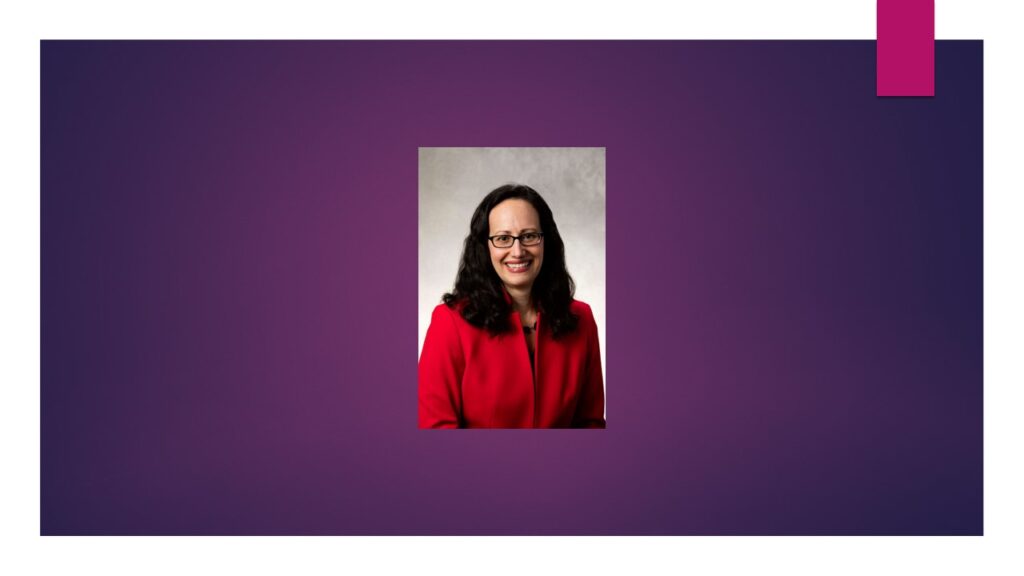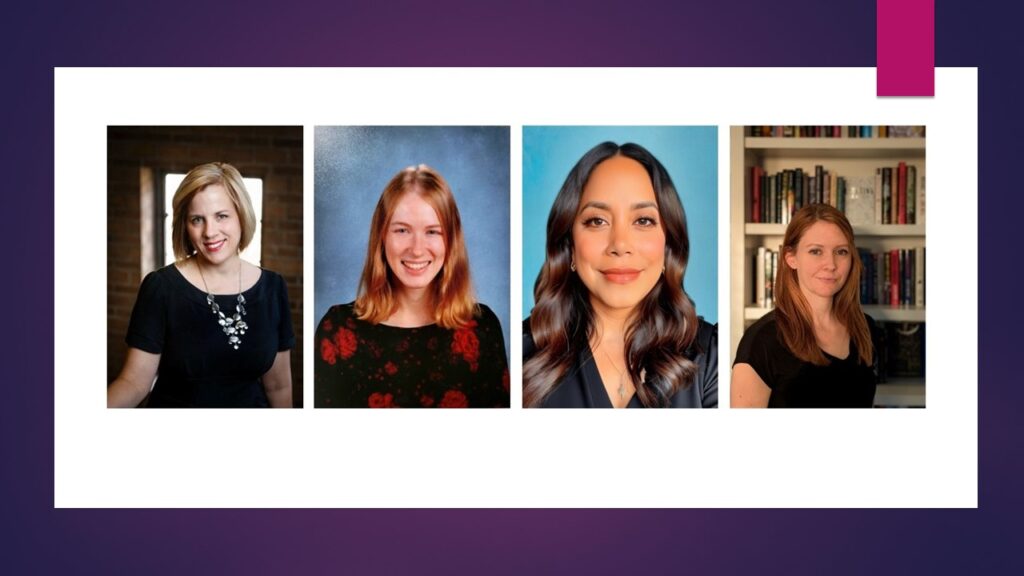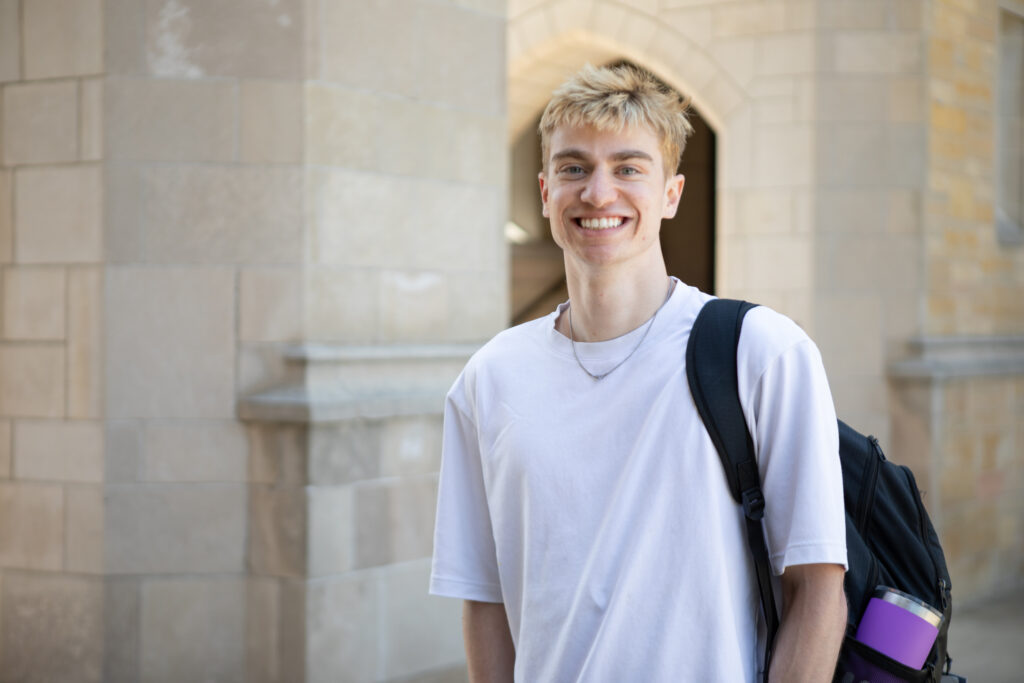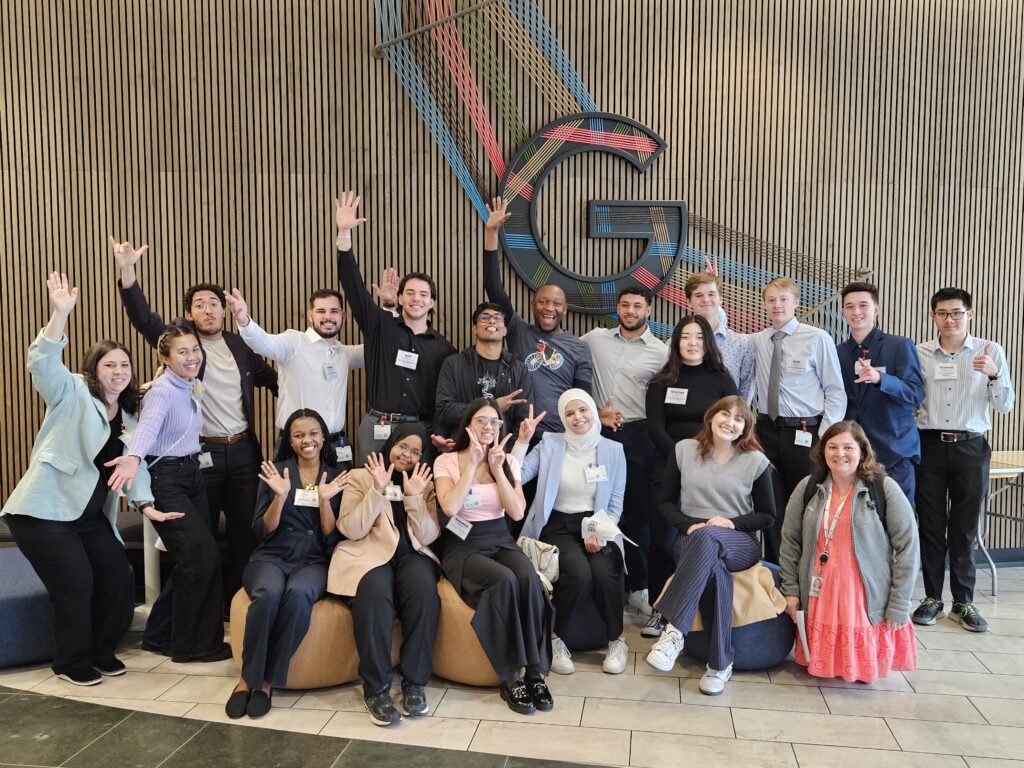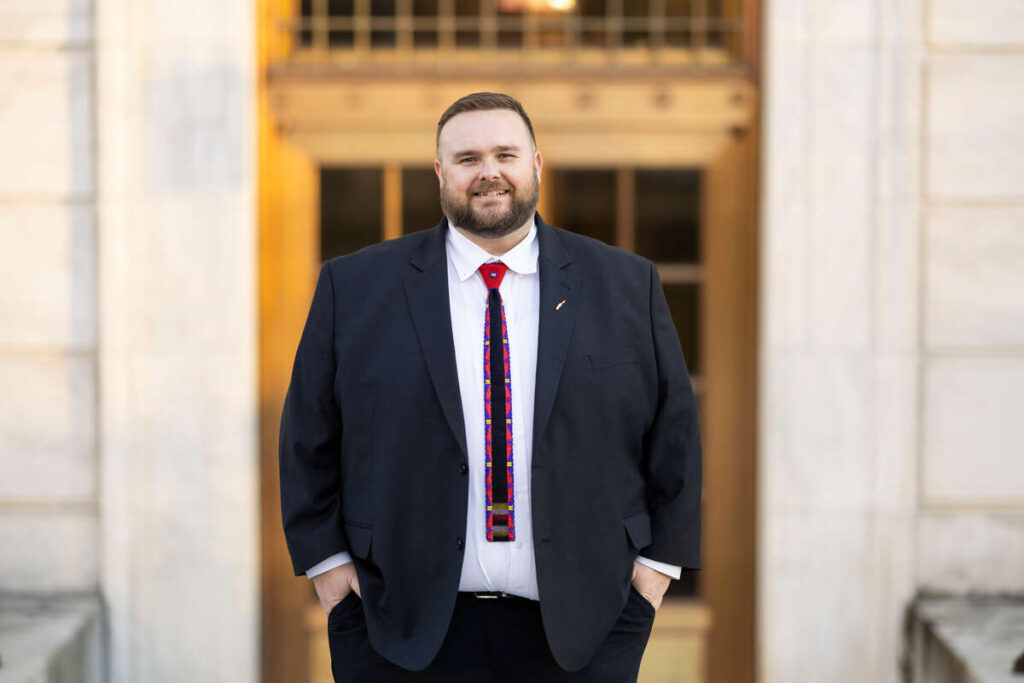University of St. Thomas students studying German, economics, and geography are among the more than 2,500 students across 27 disciplines who have enhanced city sustainability in collaboration with the community through the St. Thomas Sustainable Communities Partnership (SCP). These efforts are also serving as inspiration for others.
The Environmental Protection Agency (EPA) and the Educational Partnerships for Innovation in Communities Network (EPIC-N) selected SCP’s 2016-17 partnership with the city of Elk River to feature in their 2022 Resilience Webinar Series. The goal of their series: to catalyze university-community collaboration for resiliency across the country.
Laura Bloch, sustainability adviser for the EPA, explained that the EPA and EPIC-N have identified “locally-focused projects tackling resilience in any form” and are “publicly recognizing some of the outstanding local efforts in this webinar format to help catalyze other such work.” The EPA identified the partnership of SCP and the city of Elk River as one of these outstanding local efforts.
Expanding city capacity through experiential learning
SCP and the city of Elk River collaborated on 17 projects with 16 classes across 10 disciplines with 280 students from 2016-17.
Kristin Mroz, the city of Elk River’s environmental technician during the partnership, was excited to work with SCP. “It was a chance to leverage additional capacity for the many sustainability projects that I wanted to see the city take,” Mroz said. “As the only environmental staff coordinator for a city of 25,000 and over 40 square miles, it was important to me to develop the tools and resources for the city to be resilient in the face of staff changes, budget constraints, and increasing environmental concerns related to climate change and community development.”
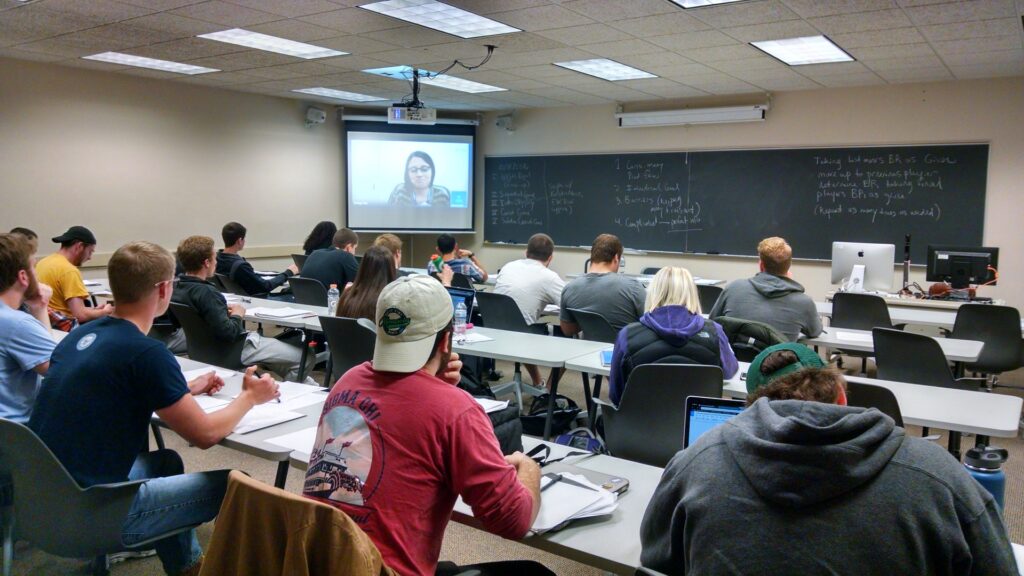
Mroz and Dr. Maria Dahmus, director of the Sustainable Communities Partnership, developed a set of project topics that could advance city goals around social, economic, and ecological dimensions of sustainability and that also could be integrated into courses across disciplines at St. Thomas to enrich student learning. Next, they collaborated with interested faculty to integrate the project topics into existing courses so that students could apply what they were already learning in class to these real-world questions.
“Through collaborative project scoping, we molded and scaled projects to the course to enrich student learning through experiential and applied real-world problem-solving and to advance partner goals. This collaborative process ensures that projects are mutually beneficial for partners, faculty, and students,” Dahmus said.
For example, Dr. Susanne Wagner integrated a project that engaged the community in climate and energy issues into her Introduction to German Studies (GERM 300) course. At the time, the city of Elk River was participating in Climate Smart Municipalities, a collaboration between Minnesotan and German cities organized by the University of Minnesota. Through Climate Smart Municipalities, Elk River was paired with Islerlohn, Germany, to collaborate on energy-smart and sustainable projects.
One of these projects was Islerlohn’s Konzeptpapier VideoContest, a contest to garner community interest in climate smart and clean energy. Elk River wanted to use this as a model for a video contest in its community, so the city partnered with Wagner’s class to achieve this goal.
“The students’ work and translation saved the city of Elk River time in developing a similar program and was also helpful in promoting the competition and our partnership with our German counterparts,” Mroz said.
The students’ work was used for a program-wide video competition between Minnesota and North-Rhine Westphalia students.
This project impacted Wagner’s educational approach.
“As a result of this project, I changed my teaching in general to make it more relevant to the real world,” Wagner said. “If it hadn’t been for this project, the community engaged work I am doing in my classes wouldn't be happening.”
Wagner’s courses now engage with community-based partnerships through a variety of topics, enriching students’ learning and helping them experience how German is relevant to current issues.
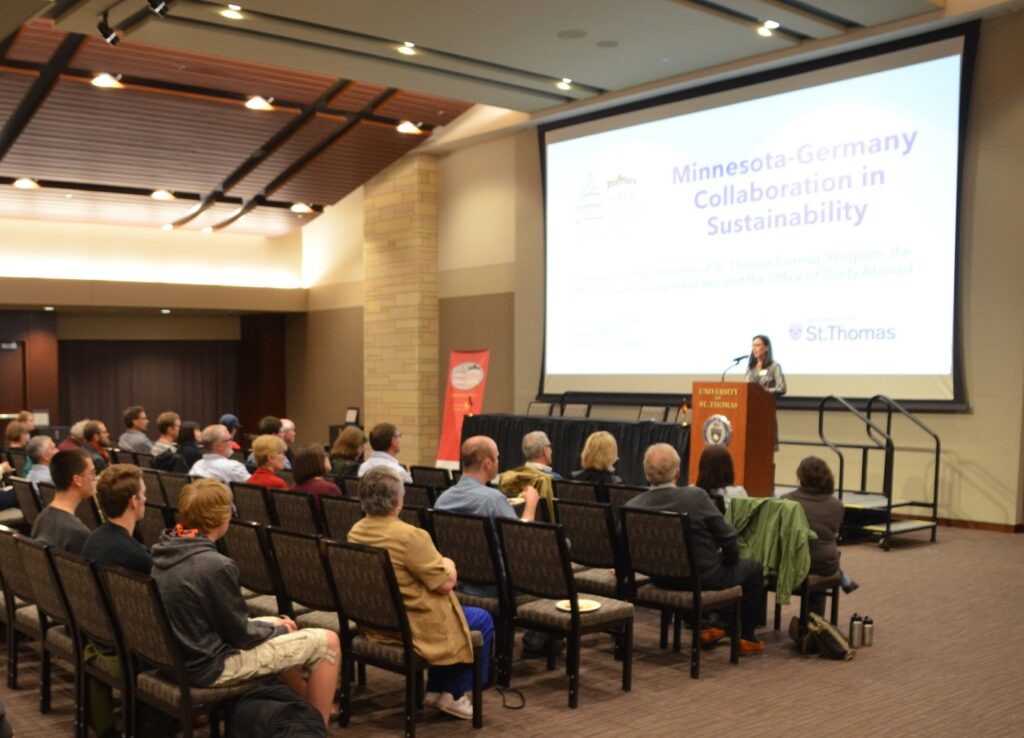
Real-world problem-solving for students
For students, this collaboration brings their learning to life and prepares them for real-world problem-solving.
“Students apply what they are learning to real-world questions and learn how to navigate the complexity and ambiguity of real-world problem-solving,” Dahmus said. “Students have shared that this experience helped prepare them for the complexity of their work after graduation.”
Dr. David Kelley’s Geographic Information Systems (GEOG 321) students collaborated with the city on several park and trail mapping projects. The city is currently using the maps and data students generated for the William H. Houlton Conservation Area on the city’s website as well as on the kiosk located at the property parking lot. Elk River is also continuing to update maps students created for Woodland Trails Regional Park with new features added to the park since the students completed their work. A student who worked on this project shared that they enjoyed the project because it allowed them to “see what the major they selected can do in real-world situations.”
Dr. Michael Walrath’s Industrial Organization (ECON 332) students collaborated on a project with the city to evaluate Elk River’s residential solid waste rate structure: fees and taxes on trash, recycling and organics collection. Based on students’ recommendations, the city removed the garbage tax from recycling and increased bin fees on larger garbage bins more than smaller carts to incentivize waste reduction. For students, they experienced the complexity of real-world problem-solving through this project. For example, a student shared that they “learned how difficult and complex real-world problems can be. Unlike a normal class problem, we were working with real people and problems and had to find the best solution.”
Cumulative impact
Over time, these interrelated projects yield a large, cumulative impact for the partner. SCP expands partners’ capacity to address questions that are vital and important to their communities but have not risen to the level of urgent.
“St. Thomas classes have helped achieve initiatives that we wouldn’t be able to accomplish ourselves for years, if ever,” Mroz said. “Not only does Elk River gain valuable data and practical applications, but we also get to aid the next generation of university students in gaining real-world expertise. It’s a win-win and we couldn’t be more honored for the opportunity.”
This 2016-17 partnership has also contributed to relationships into the future. Mroz, now the co-director of Minnesota GreenStep Cities and Tribal Nations, is once again partnering with SCP. Among the goals for the new partnership is developing and updating sustainability best practices for a range of topics as resources and guidance for cities across Minnesota.
Since SCP began in 2016, the program has collaborated with local partners on over 160 projects across 27 different disciplines. For Dahmus, this multi-disciplinary engagement with projects is especially exciting, demonstrating that each field of study has important contributions to sustainability.
“This is all possible through collaboration – developing mutually beneficial experiential and applied learning projects with partners, faculty, and students,” Dahmus said. “I’m so thankful for all of our partnering communities, faculty, and students and the relationships developed through collaboration that enrich learning, prepare students to be future leaders and collaborators in sustainability, and improve interconnected human and ecological well-being in our communities.”
